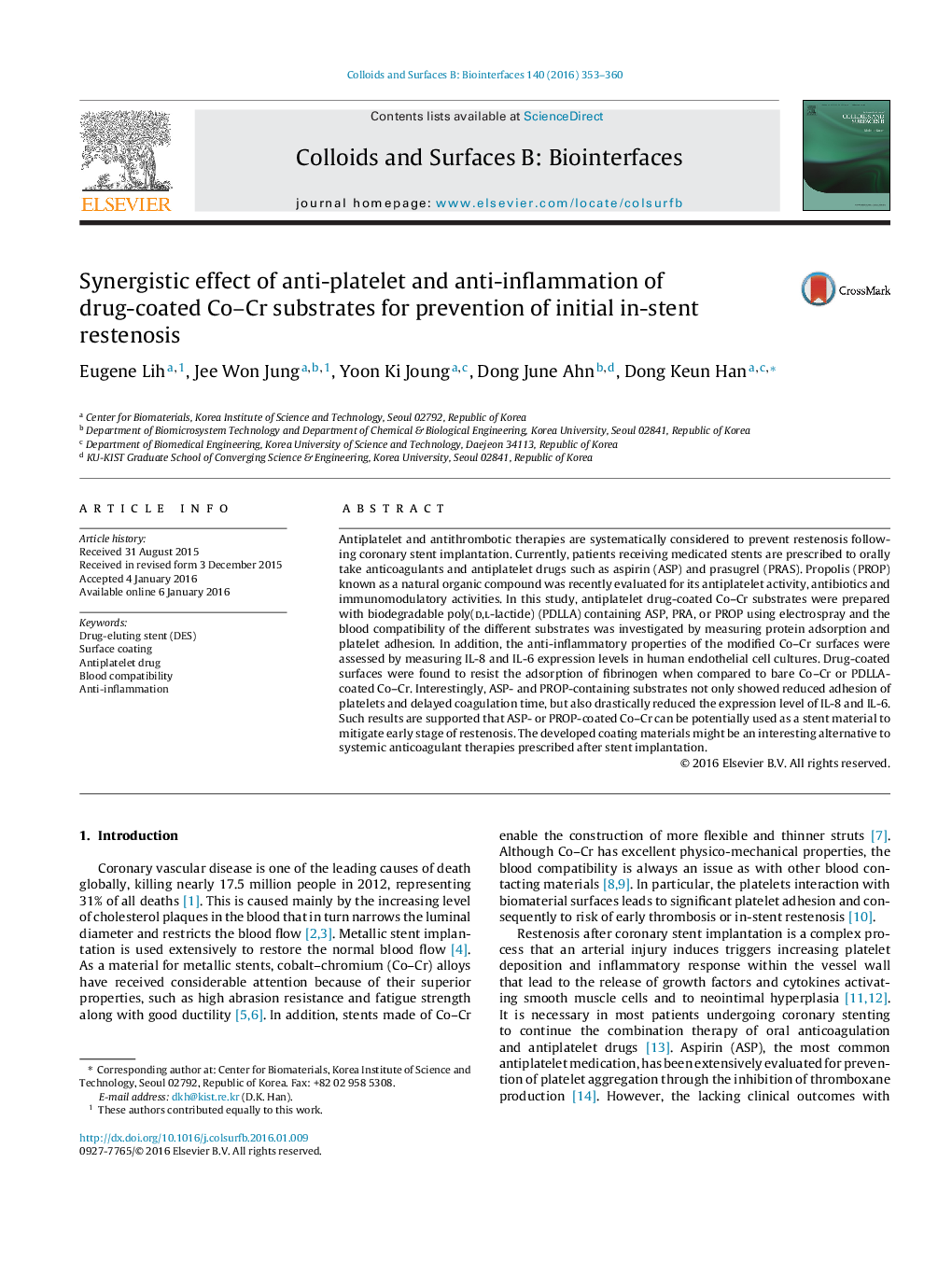| Article ID | Journal | Published Year | Pages | File Type |
|---|---|---|---|---|
| 599124 | Colloids and Surfaces B: Biointerfaces | 2016 | 8 Pages |
•Antiplatelet drug-coated Co–Cr substrates were prepared by using electrospray.•Aspirin- and propolis-coated Co–Cr reduced platelet adhesion and activation.•Aspirin- and propolis-coated Co–Cr have anti-inflammatory effect.•Non-metabolized prasugrel on the stent does not cause any of these effects directly.
Antiplatelet and antithrombotic therapies are systematically considered to prevent restenosis following coronary stent implantation. Currently, patients receiving medicated stents are prescribed to orally take anticoagulants and antiplatelet drugs such as aspirin (ASP) and prasugrel (PRAS). Propolis (PROP) known as a natural organic compound was recently evaluated for its antiplatelet activity, antibiotics and immunomodulatory activities. In this study, antiplatelet drug-coated Co–Cr substrates were prepared with biodegradable poly(d,l-lactide) (PDLLA) containing ASP, PRA, or PROP using electrospray and the blood compatibility of the different substrates was investigated by measuring protein adsorption and platelet adhesion. In addition, the anti-inflammatory properties of the modified Co–Cr surfaces were assessed by measuring IL-8 and IL-6 expression levels in human endothelial cell cultures. Drug-coated surfaces were found to resist the adsorption of fibrinogen when compared to bare Co–Cr or PDLLA-coated Co–Cr. Interestingly, ASP- and PROP-containing substrates not only showed reduced adhesion of platelets and delayed coagulation time, but also drastically reduced the expression level of IL-8 and IL-6. Such results are supported that ASP- or PROP-coated Co–Cr can be potentially used as a stent material to mitigate early stage of restenosis. The developed coating materials might be an interesting alternative to systemic anticoagulant therapies prescribed after stent implantation.
Graphical abstractThe asprin (ASP)- and propolis (PROP)-coated cobalt–chrome (Co–Cr), reducing adhesion of platelets and the expression levels of inflammatory factors, can be potentially used as a coronary stent material to mitigate early stage of restenosis.Figure optionsDownload full-size imageDownload as PowerPoint slide
